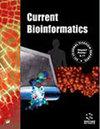Prospects of Identifying Alternative Splicing Events from Single-Cell RNA Sequencing Data
IF 2.9
3区 生物学
Q3 BIOCHEMICAL RESEARCH METHODS
引用次数: 0
Abstract
Background: The advent of single-cell RNA sequencing (scRNA-seq) technology has offered unprecedented opportunities to unravel cellular heterogeneity and functions. Yet, despite its success in unraveling gene expression heterogeneity, accurately identifying and interpreting alternative splicing events from scRNA-seq data remains a formidable challenge. With advancing technology and algorithmic innovations, the prospect of accurately identifying alternative splicing events from scRNA-seq data is becoming increasingly promising Objective: This perspective aims to uncover the intricacies of splicing at the single-cell level and their potential implications for health and disease. It seeks to harness scRNA-seq's transformative power in revealing cell-specific alternative splicing dynamics and aims to propel our understanding of gene regulation within individual cells to new heights. Methods: The perspective grounds its method on recent literature along with the experimental protocols of single-cell RNA-seq and methods to identify and quantify the alternative splicing events from scRNA-seq data. Results: This perspective outlines the promising potential, challenges, and methodologies for leveraging different scRNA-seq technologies to identify and study alternative splicing events, with a focus on advancing our understanding of gene regulation at the single-cell level. Conclusion: This perspective explores the prospects of utilizing scRNA-seq data to identify and study alternative splicing events, highlighting their potential, challenges, methodologies, biological insights, and future directions.从单细胞 RNA 测序数据中识别替代剪接事件的前景
背景:单细胞 RNA 测序(scRNA-seq)技术的出现为揭示细胞异质性和功能提供了前所未有的机会。然而,尽管该技术在揭示基因表达异质性方面取得了成功,但从 scRNA-seq 数据中准确识别和解释替代剪接事件仍然是一项艰巨的挑战。随着技术的进步和算法的创新,从 scRNA-seq 数据中准确识别替代剪接事件的前景正变得越来越光明:本视角旨在揭示单细胞水平剪接的复杂性及其对健康和疾病的潜在影响。它试图利用 scRNA-seq 在揭示细胞特异性替代剪接动态方面的变革能力,并将我们对单个细胞内基因调控的理解推向新的高度。方法:该视角的研究方法基于最新的文献、单细胞 RNA-seq 实验方案以及从 scRNA-seq 数据中识别和量化替代剪接事件的方法。结果:本视角概述了利用不同 scRNA-seq 技术识别和研究替代剪接事件的巨大潜力、挑战和方法,重点是推进我们对单细胞水平基因调控的理解。结论:本视角探讨了利用 scRNA-seq 数据识别和研究替代剪接事件的前景,强调了其潜力、挑战、方法、生物学见解和未来方向。
本文章由计算机程序翻译,如有差异,请以英文原文为准。
求助全文
约1分钟内获得全文
求助全文
来源期刊

Current Bioinformatics
生物-生化研究方法
CiteScore
6.60
自引率
2.50%
发文量
77
审稿时长
>12 weeks
期刊介绍:
Current Bioinformatics aims to publish all the latest and outstanding developments in bioinformatics. Each issue contains a series of timely, in-depth/mini-reviews, research papers and guest edited thematic issues written by leaders in the field, covering a wide range of the integration of biology with computer and information science.
The journal focuses on advances in computational molecular/structural biology, encompassing areas such as computing in biomedicine and genomics, computational proteomics and systems biology, and metabolic pathway engineering. Developments in these fields have direct implications on key issues related to health care, medicine, genetic disorders, development of agricultural products, renewable energy, environmental protection, etc.
 求助内容:
求助内容: 应助结果提醒方式:
应助结果提醒方式:


